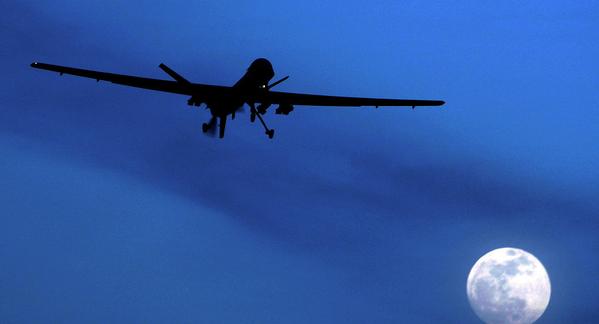And so it begins Iran versus Saudi Arabia, a matter to be watched closely.
Earlier today: A flight left Tehran heading to possibly Riyadh to evacuate Iranians or collect those that Saudi Arabia is expelling.

Fury in Iran and Iraq as Saudis execute top Shiite cleric
Tehran warns Riyadh will ‘pay high price’ for killing Nimr al-Nimr, accused of role in al-Qaeda attacks; 46 others also put to death
Saudi Arabia on Saturday executed a prominent Shiite cleric behind anti-government protests along with 46 other men, drawing angry condemnation from Iran and Iraq.
A list published by the official Saudi Press Agency included Sunni Muslims convicted of involvement in al-Qaeda attacks that killed Saudi and foreigners in the kingdom in 2003 and 2004.
One of those executed was Fares al-Shuwail, described by Saudi media as al-Qaeda’s top religious leader in the kingdom. He was arrested in 2004.
Mohammed al-Nimr, the father of Ali al-Nimr, a Saudi youth facing execution for taking part in pro-reform protests speaks to AFP in the Saudi capital, Riyadh, on September 23, 2015. (STR/AFP)
Notably absent from the list, however, was Nimr’s nephew, Ali al-Nimr, whose arrest at the age of 17 and alleged torture during detention sparked condemnation from rights watchdogs and the United States. More here from TimesofIsrael.
WashingtonInst.: Iran’s history of targeting Saudi Arabia: On April 27, the head of Iran’s Islamic Revolutionary Guard Corps (IRGC), Maj. Gen. Mohammad Ali Jafari, lashed out at Saudi Arabia and its recent military intervention in Yemen, accusing the “treacherous Saudis” of “following in Israel’s footsteps” by “shamelessly and disgracefully bombing and mass killing” the Yemeni people. The increased Saudi aggression in the region, he contended, demands a tougher response from Tehran. Similarly, Hezbollah deputy secretary-general Naim Qassem warned in an April 13 interview with the Associated Press that the kingdom will “incur very serious losses” and “pay a heavy price” as a result of its Yemen campaign. Given historical precedent — not to mention numerous other angry statements from Tehran of late (see PolicyWatch 2423, “Yemen’s War Heats Up Iran’s Anti-Saudi Rhetoric”) — Riyadh should take such threats at face value.
TRACK RECORD OF TARGETING SAUDI INTERESTS
Iran has a long history of plotting attacks against its Saudi rivals in response to transgressions real and perceived. These plots, carried out by Iranian agents and Hezbollah proxies, have targeted Saudi interests in the Middle East and elsewhere. One of the most recent — traced back to IRGC Qods Force commander Qasem Soleimani and other senior Iranian decisionmakers — was the failed October 2011 plot to assassinate the Saudi ambassador in Washington by bombing a restaurant he frequented. Yet Tehran’s earliest anti-Saudi schemes stretch back nearly to the regime’s founding.
WashingtonInst.: Hassan Rouhani’s victory in Iran’s presidential election has been widely heralded as a protest vote against the hardliners and a window of opportunity for diplomatic breakthrough with Western powers. But such assumptions beg the question: just how much moderation should be expected from a “moderate” Iranian president, particularly with regard to state sponsorship of terrorism? Past precedent suggests that expectations should be tempered.
RAFSANJANI’S TERRORISM REPORT CARD
Rouhani is not the first Iranian “moderate” to win the presidency. Akbar Hashemi Rafsanjani, elected in 1989, was frequently described as a moderate as well. According to U.S. intelligence, however, he oversaw a long string of terrorist plots during his eight years in office.
The CIA linked Rafsanjani to terrorist plots as early as 1985, when he was serving as speaker of parliament. In a February 15, 1985, memo, the agency assessed that “Iranian-sponsored terrorism is the greatest threat to US personnel and facilities in the Middle East…Iranian-backed attacks increased by 30 percent in 1984, and the numbers killed in Iranian-sponsored attacks outpace fatalities in strikes by all other terrorist sponsors. Senior Iranian leaders such as Ayatollah Montazeri,…Prime Minister [Mir Hossein Mousavi], and Consultative Assembly speaker Rafsanjani are implicated in Iranian terrorism.”
In September of 2015: WashingtonInst.: Two weeks ago, according to several media reports, Ahmed al-Mughassil, the military chief of Saudi Hezbollah (Hezbollah al-Hijaz) and the principal architect of the 1996 Khobar Towers bombing, was apprehended in Beirut — where it was believed he lived under Lebanese Hezbollah protection — and was transferred to the custody of Saudi Arabia. A physically small man, standing at five feet four inches and weighing 145 pounds, Mughassil is accused of orchestrating and then personally executing one of the most spectacular terrorist attacks carried out by Iran and its proxies against the United States.
The circumstances of Mughassil’s capture are still unknown, but the timing raises multiple questions. How did a man who evaded capture for almost 20 years suddenly get caught? And what does it mean that the arrest comes against the background of the Iran nuclear deal and in the context of rising tensions between Iran and Saudi Arabia and between their respective allies in Lebanon?
Officials in Beirut, Riyadh, and Washington have yet to confirm Mughassil’s capture, but it is no secret that both Saudi and American investigators have been keen to apprehend him for years. Mughassil was indicted in the United States District Court for the Eastern District of Virginia for the bombing, and the U.S. State Department’s Rewards for Justice Program offers $5 million for information leading to his capture. More reading here from Matthew Levitt, at Washington Institute.
How Saudi fought al Qaida:
http://saic.alarabiya.net/program/15/12/04/20151204-terrorinksa-002.mp4 Part 1
http://saic.alarabiya.net/program/15/12/05/20151205-terrorinksa-001.mp4 Part 2
http://saic.alarabiya.net/program/15/12/04/20151204-terrorinksa-003.mp4 Part 3


